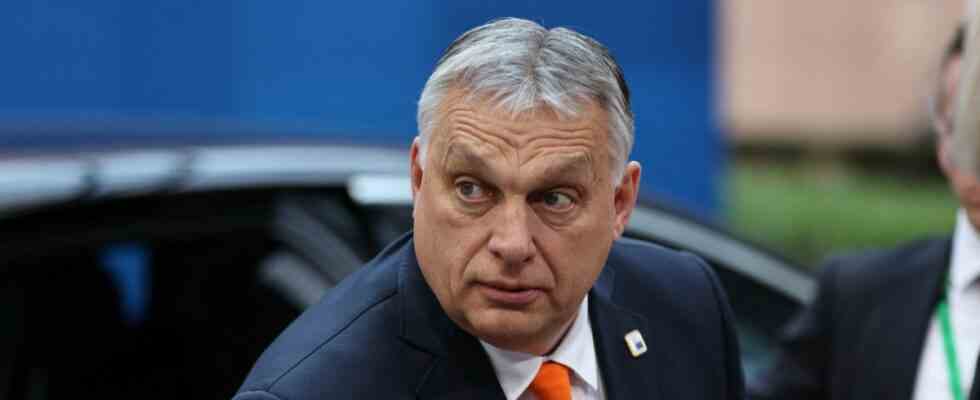Election Sunday in Hungary was undoubtedly a low point in the history of the European Union. If you measure the EU by its original, free-democratic claims, it only has 26 member states. Looking at Poland you could say: 25 and a half.
In the search for culprits, the EU itself keeps popping up. At any point in history, could she have prevented Viktor Orbán from rebuilding the state in his favor, controlling the media and changing the electoral law in such a way that he can hardly lose? The answer is: of course yes.
All other heads of state and government should have threatened him with being thrown out. Orbán would certainly have given in, because his system lives on EU money. However, since the 2015 election victory of the Polish PiS party, there has no longer been a united front against Orbán. The refugee crisis at the time gave the national populists a boost throughout Eastern Europe and is still used today to mobilize their voters against supposed Western elites.
Orbán is dancing on the EU’s nose
In general, the governments of the member countries avoid hurting each other as much as possible – if only because unanimity is required for important decisions in the EU. The sad truth is that Orbán can dance all over the EU, which is also due to its structure. This is where Angela Merkel comes into play.
The long-serving chancellor’s European policy is now being questioned just as much as her Russia policy. She was considered to understand Orbán and has repeatedly tried to involve him. Like her party family, she may have been too lenient. On the other hand, she at least wrested the rule of law mechanism from Orbán and the Pole Morawiecki in the last big deal she engineered, the gigantic Corona aid fund. It can result in the withdrawal of regular budget funds.
The Commission under Ursula von der Leyen is now being criticized for its hesitation. It only initiated the mechanism this Tuesday, two days after the election. Von der Leyen did not want Orbán to provide additional material for his election campaign with the enemy image of the EU. Rule of law mechanism before or after: Both ideas of being able to influence Hungarian elections correspond to a certain Brussels hubris. After all, Orbán’s electorate was not even impressed that the Commission refused to pay out seven billion euros from the Corona pot.
The only way out: negotiate hard
Perhaps cynicism is the best attitude to deal with a man like Orbán. Now, after the election, is the best time to negotiate hard with him. After handing out so many election gifts, he is dependent on the billions from Brussels. And it may be a good idea to pay the Polish government the 24 billion Corona at the same time to break the alliance with Hungary.
Without dirty compromises, the EU will not be steerable in the future either. When it comes to sanctions against Putin, she needs a unified line. And if the EU wants to bind other Eastern European states to itself more quickly in order to remove them from Putin’s sphere of influence, it will encounter two problems in particular: a lack of rule of law and corruption.

